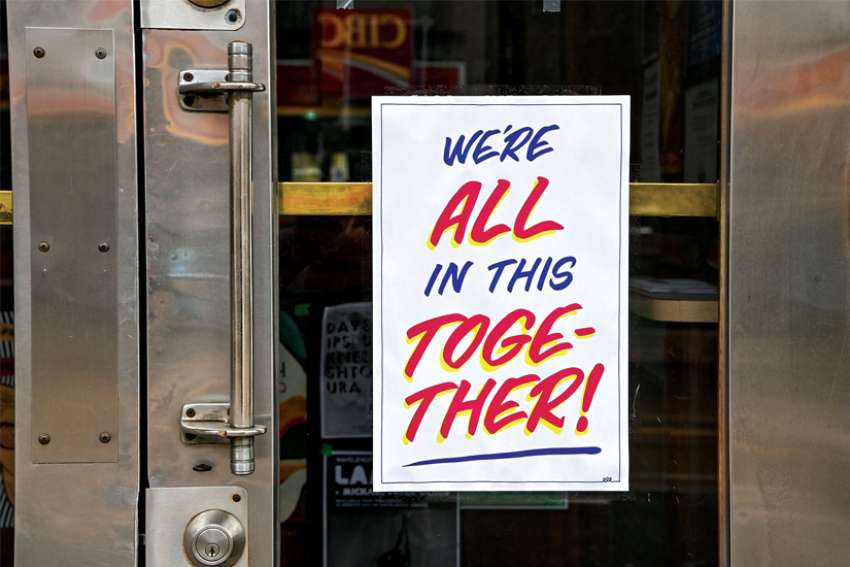So far, while the Grim Reaper continues to slay especially the elderly, the poor and other vulnerable people, the signs are not good. The inclination to care for mine and mine alone has escalated. The trend, at least in the Western world, is toward tribalism, toward an intense loyalty to one’s own ethnic, social or political group. Amy Chua, author of Political Tribes, succinctly summed up the problem with tribalism: “The tribal instinct is not just an instinct to belong. It is also an instinct to exclude.”
This month marks the 35th anniversary of Pope John Paul II’s encyclical On Social Concern (Sollicitudo Rei Socialis). The 1987 document sought to broaden the concept of development beyond the realm of economic development. True development must also include cultural, political and human development. Human beings were created to do more than make money. People become more fully human by striving to bring about the common good.
Pope John Paul expanded the notion of development by focusing on solidarity, a central theme in Catholic social and moral teaching. Solidarity is not a feeling. It is a moral virtue, “a firm and persevering determination to commit oneself to the common good.” It enables us to see all people as sharers in the banquet of life. For one to be truly Christian, the Pope implied, solidarity must be a cornerstone of one’s life.
Much has changed since its publication. The world has witnessed growing climate change, the collapse of Eastern Bloc communism, wars in the former Yugoslavia and Ukraine, and increased political polarization.
Perhaps most prominent has been the pursuit of personal autonomy — a false freedom in which individuals seek fulfillment by erecting an ever-higher wall between themselves and the community. We all need autonomy so our lives are not controlled by authoritarian rulers, abusive individuals or repressive social codes. But it is solidarity, not autonomy, which provides true freedom. Self-giving, not self-centeredness, reveals human dignity — that we have been created in God’s image.
Solidarity, Pope John Paul wrote, is an active concern for everyone, especially the most neglected. It calls each person to be ready to accept sacrifices for the good of all. Solidarity is undermined by an over-zealous concern for personal and national security, “systematic campaigns against birth” and “blind submission to pure consumerism.”
From the Old Testament we learn of an idolatry in which the people worshipped statues made by human hands. The encyclical warns of modern idolatries of money, ideology, class and technology. The psalmist warned that those who worshipped idols become like them — “they have mouths but do not speak; eyes, but do not see. … They make no sound in their throats.” Idolatry is any form of addiction, a habit we cannot live without. Attention to idols makes us inert, robbing us of our ability to interact with God and our neighbour.
Despite the changes of the past 35 years, the challenge of Sollicitudo Rei Socialis has grown even greater. We must develop our concern for the most vulnerable, at home and abroad. As much as we are able, our choices should be formed by love rather than self-interest. Unlike the idol worshippers who make no sound in their throats, we must advocate for social and political changes which will enhance the full development of those on the margins of society.
Pope John Paul set an example. He was a saint, and not simply because he prayed a great deal and followed God’s call to serve the Church. He challenged all ideologies and was a courageous voice crying out for greater respect for human dignity. His was a voice which shook the foundations of the communist system, emboldening others to follow their consciences rather than hollow gods of power, money and personal security.
None of us have the public stature of Pope John Paul. But we all have the ability to influence other people and social and economic structures. We should use that ability to express our solidarity with those whose own voices are not often heard.
(Glen Argan writes his online column Epiphany at https://glenargan.substack.com.)


